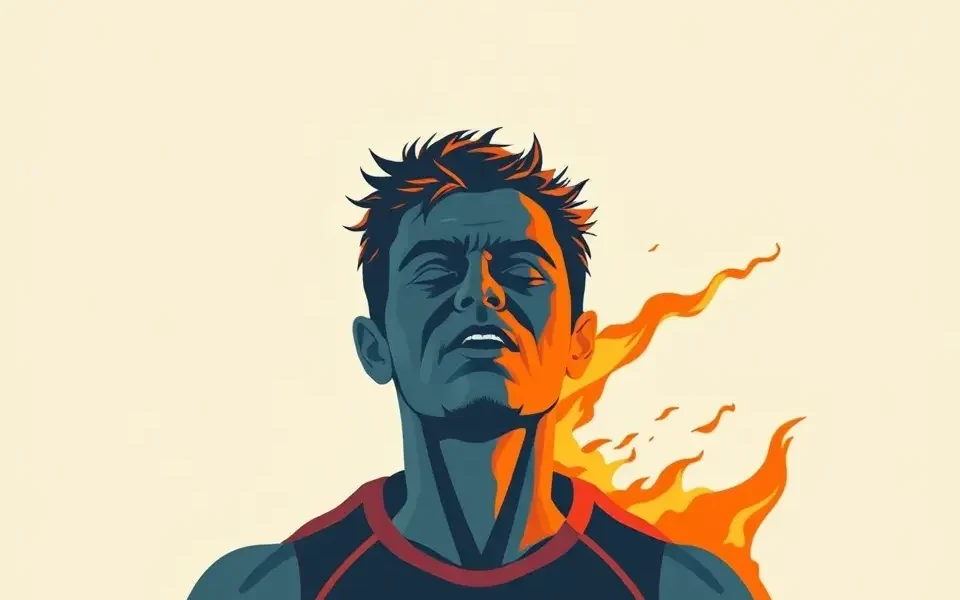Aryna Sabalenka, the Belarusian tennis star known for her powerful game and fierce competitiveness, has recently found herself in the crosshairs of criticism. Rennae Stubbs, a former doubles world No. 1 and ex-coach of Serena Williams, has publicly called out Sabalenka’s post-match behavior, labeling it as “passive-aggressive” and “annoying.” This critique has sparked a debate about the player’s conduct and how she handles the pressures of elite competition.
The “Passive-Aggressive” Accusation
Stubbs’ comments stem from Sabalenka’s tendency to make sarcastic remarks towards her team following defeats. According to Stubbs, these remarks, often delivered with a laugh, come across as veiled criticism rather than genuine appreciation. Examples cited include instances where Sabalenka jokingly suggested “firing” her team or expressed a desire to avoid them after losing finals, like the one against Jelena Ostapenko in Stuttgart.
“One thing I am getting a little bit tired of with Aryna… I am really tired of her going after her team when she loses with sarcasm,” Stubbs said on her podcast. “I’m over it… stop telling your team hey guys great job today every time… stop giving them s***. Because it’s so passive-aggressive and a little annoying. And then she tries to laugh and it’s like it’s not funny.”
Sabalenka’s Perspective
Sabalenka is known as an emotional player who always wants to win. After losing the Stuttgart final, she insisted that she has learned over time how to have a short memory and that she should be perfectly fine for this week’s Madrid Open. Sabalenka is determined to bounce back from setbacks, highlighting her ability to quickly move on from defeats and focus on upcoming tournaments.
Fan Reaction
Stubbs’ take didn’t go down well with several tennis fans, who took angry swipes at the Australian former women’s doubles No. 1.
Is It Just Sarcasm or Something More?
The central question is whether Sabalenka’s comments are simply a form of sarcasm, a way to mask her disappointment, or if they reflect a deeper issue in her relationship with her team. Sarcasm can be a tricky communication tool, often used to express frustration or disappointment indirectly. While some may find it humorous, others can perceive it as passive-aggressive, especially when directed at those in a subordinate position, such as a coaching team.
The Pressure Cooker of Professional Tennis
Professional tennis is an incredibly demanding sport, both physically and mentally. Players face intense pressure to perform, and the stakes are incredibly high. Losses can be devastating, and the frustration that follows can manifest in different ways. Sabalenka, known for her emotional style, may be using sarcasm as a coping mechanism, a way to release tension and deflect from the pain of defeat.
Team Dynamics
The relationship between a tennis player and their coaching team is crucial for success. It requires trust, open communication, and mutual respect. If Sabalenka’s sarcastic remarks are perceived as undermining her team or diminishing their efforts, it could create tension and negatively impact their dynamic.
The Importance of Authenticity
Stubbs argues that Sabalenka needs to show genuine appreciation for her team rather than veiled criticism. Authenticity is essential in any relationship, and in the high-pressure world of professional sports, it can be even more critical. Players who are genuine in their interactions with their team are more likely to foster a positive and supportive environment, which can ultimately lead to better performance.
Other Controversies
This isn’t the first time Sabalenka has faced scrutiny for her behavior. Here’s a look at some other instances where she’s been in the headlines:
- Australian Open Runner-Up Trophy Incident: Following her loss to Madison Keys in the 2025 Australian Open final, a video surfaced online showing Sabalenka and members of her team engaging in a controversial celebration with the runner-up trophy. The video showed them laughing and performing pelvic thrusts over the trophy, which was placed on the floor, pretending to urinate over it. The actions were widely criticized by fans on social media, who described them as disrespectful and called for an explanation and public apology.
- Racket Smashing Fine: After losing the 2025 Australian Open final, Sabalenka was fined $20,000 for smashing her racket in frustration. She explained that she “just needed to throw those negative emotions at the end just so I could give a speech, not stand there being disrespectful.”
- Grunting: Sabalenka’s grunting during matches has been a topic of discussion. Some argue that it interferes with opponents’ ability to hear the ball being struck, while Sabalenka has defended her grunting, saying, “Honestly, I don’t even hear myself when I am playing.”
Sabalenka’s Strengths
Despite the controversies, Sabalenka is undeniably a force to be reckoned with on the court. Here are some of her strengths:
- Powerful Hitting: Sabalenka is known for her powerful groundstrokes, with some statistics showing that her forehand speed is faster than that of top male players.
- Aggressive Style: She plays an aggressive style of tennis, taking the ball early and at full power.
- Mental Fortitude: Sabalenka has demonstrated mental fortitude, bouncing back from losses and maintaining a strong focus on her goals.
- Fearless Approach: Serena Williams’ former coach, Rick Macci, applauded Sabalenka’s fearless approach. Taking to X, he wrote, “What I love most about Sabalenka and her game is THE BIG C. Courage…she tries to deal the cards and run the show every match. BANG! Zero Fear from Ear to Ear.”
The Road Ahead
As Aryna Sabalenka continues her career, the spotlight will undoubtedly remain on her, both for her performance on the court and her behavior off of it. Whether she takes the criticism to heart and adjusts her approach remains to be seen. However, one thing is clear: in the world of professional tennis, every action is scrutinized, and even the smallest gestures can have a significant impact. As Sabalenka navigates the complexities of professional tennis, the spotlight remains on her ability to manage emotions and relationships in the high-stakes environment of elite competition. She is determined to bounce back from setbacks and focus on upcoming tournaments, such as the Madrid Open.








No Comment! Be the first one.